Artificial intelligence (AI) has been transforming the business landscape for years, but 2025 is set to be a pivotal year. From streamlining operations to delivering highly personalized customer experiences, AI is no longer a futuristic concept—it’s a present-day necessity. For business owners, understanding AI trends and their potential impact is critical for staying competitive.
Here’s a deep dive into how the AI boom in 2025 is shaping industries, improving workflows, and offering unparalleled opportunities for growth.
AI Adoption Across Industries
The integration of AI has expanded far beyond tech companies. Industries like healthcare, finance, retail, and even agriculture are harnessing AI to drive efficiency and innovation. For example:
- Healthcare: AI-powered diagnostics and treatment planning are becoming standard, helping medical professionals make more accurate decisions faster.
- Finance: AI is revolutionizing fraud detection, risk assessment, and personalized financial advice.
- Retail: Businesses use AI to optimize inventory management and enhance customer experiences through predictive analytics.
- Agriculture: Smart farming systems powered by AI help optimize crop yields, reduce waste, and combat climate challenges.
For business owners, these applications highlight the versatility of AI and its ability to address unique challenges in various sectors.
AI and Small Business: A Game-Changer
AI is no longer exclusive to large corporations with massive budgets. Affordable AI tools are empowering small and medium-sized enterprises (SMEs) to compete on a larger scale. In 2025, some of the most impactful uses of AI for small businesses include:
- Customer Service Automation: Chatbots and virtual assistants provide 24/7 support, answering common questions and resolving issues without human intervention.
- Marketing Personalization: AI tools analyze customer data to deliver targeted ads, emails, and product recommendations that increase conversion rates.
- Operational Efficiency: AI-powered scheduling, task automation, and resource management tools save time and reduce human error.
These tools level the playing field, enabling small businesses to offer the same level of service and efficiency as their larger counterparts.

Key AI Trends to Watch in 2025
1. Generative AI in Content Creation
Generative AI tools are becoming increasingly sophisticated, capable of producing high-quality written content, videos, images, and even music. Businesses are leveraging these tools for:
- Marketing: Quickly generating ad copy, social media posts, and blog articles.
- Training Materials: Creating personalized training programs for employees.
- Product Development: Prototyping designs using AI-generated concepts.
Generative AI saves time and resources while maintaining creative quality, making it an essential tool for businesses aiming to scale their content efforts.
2. AI-Powered Predictive Analytics
Data is the backbone of modern business, and AI makes it actionable. Predictive analytics tools analyze historical data to forecast trends, helping businesses make informed decisions about:
- Inventory management
- Customer demand
- Market trends
By adopting predictive analytics, business owners can anticipate challenges and seize opportunities before competitors.
3. Voice AI for Seamless Interactions
Voice technology is gaining traction as customers increasingly prefer hands-free, voice-activated interactions. Businesses are integrating voice AI into their strategies by:
- Optimizing websites and apps for voice search
- Using AI-powered voice assistants to improve customer service
- Implementing voice-based ordering systems
Voice AI is especially important for businesses looking to improve accessibility and convenience for their customers.
4. AI in Recruitment and HR
Finding and retaining the right talent is critical, and AI is transforming HR processes. In 2025, businesses are using AI to:
- Screen resumes and shortlist candidates based on specific criteria
- Provide employee performance analytics
- Predict turnover rates and recommend retention strategies
AI ensures that businesses can build stronger teams while minimizing time spent on repetitive HR tasks.
AI Ethics and Challenges in 2025
While AI offers numerous benefits, it also raises ethical concerns that business owners need to address. Transparency, data privacy, and fairness are key issues. To responsibly integrate AI:
- Ensure Data Security: Protect customer and employee data with robust cybersecurity measures.
- Avoid Bias: Use diverse datasets to minimize bias in AI algorithms.
- Stay Transparent: Clearly communicate how AI is used in your business to build trust with customers.
Regulations around AI are expected to tighten in 2025, making compliance a priority for all businesses.

How to Start Leveraging AI in Your Business
If your business hasn’t started integrating AI, now is the time. Here are steps to get started:
- Identify Pain Points: Pinpoint areas where AI can solve problems or improve efficiency, such as customer service, inventory management, or marketing.
- Choose the Right Tools: Research and invest in AI tools designed for your industry and budget. Platforms like ChatGPT, Salesforce Einstein, and HubSpot AI offer great starting points.
- Train Your Team: Provide training to ensure employees understand how to use AI tools effectively.
- Monitor Performance: Continuously analyze the results and adjust your strategies for optimal outcomes.
The Competitive Edge of AI
Businesses that embrace AI in 2025 are positioned to outperform their competitors. By automating repetitive tasks, offering personalized customer experiences, and improving decision-making, AI provides a clear path to growth and innovation.
For business owners, the question is no longer whether to adopt AI—it’s how to do it effectively. With the right tools and strategies, AI can become a powerful ally in achieving your business goals.
